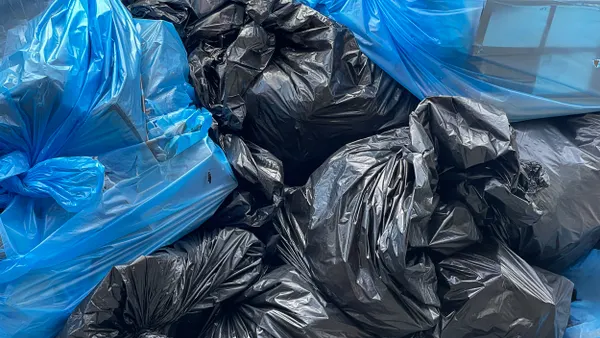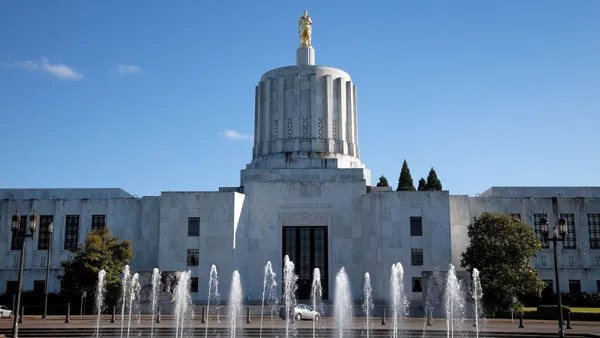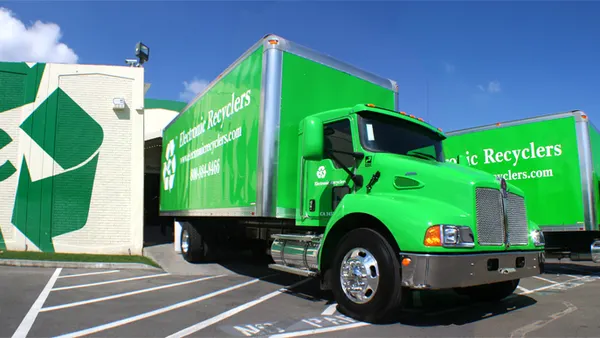Dive Brief:
- A newly released "Consumer Tracker Recycling Survey" from Keep America Beautiful and Natural Marketing Institute found that consumers believe recycling has become more prevalent and gotten easier since the 1970s, though the amount of waste ending up in oceans and landfills has gotten worse.
- Based on a representative online sampling of 1,000 adults, 33% were skeptical that the waste they put on the curb is recycled and 27% believe their waste is mixed with refuse in the same truck. Millennials had the highest level of distrust across the four generations sampled. However millennials were also the most likely to buy from companies that used recycled content in their packaging or made packaging that could be easily recycled.
- On a general level, 51% of respondents said they recycle to reduce the amount of waste going to landfills and 43% said they do it to conserve resources.
Dive Insight:
These results were released to coincide with America Recycles Day, which started as a way to encourage the use of recycled packaging as well as improve diversion habits. Compared to where it stood in the 1970s, recycling has become a much more mainstream and accessible activity, though these results are a reminder that it still isn't fully understood by the general population. Newly released Environmental Protection Agency data which shows the national diversion rate essentially remaining flat in 2014 further reinforces that.
As shown by the fact that large percentages of people recognized why recycling was important but didn't trust the collection process, the disconnect seems to be a lack of awareness about the industry's inner workings. A recent survey in England similarly found that consumers might be more apt to recycle if they knew more about where the material was going and what it was being used to make. Companies have been focusing more on showing people how this works, particularly through educational campaigns for young children.
Making sure children understand why they should be recycling and what it means is especially important in light of the distrust numbers among millennials. While it's true that some waste does get mixed and poorly regulated recycling operations can be harmful to the environment, the overall environmental benefits are widely believed to outweigh those issues. As young people start to become leaders in their communities and workplaces, they need to be equipped with the right knowledge to help others understand this.











